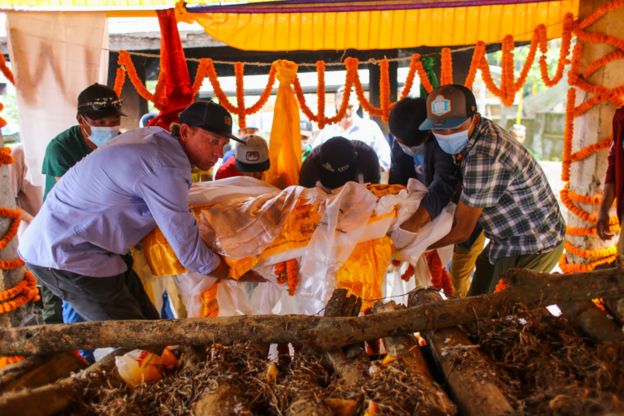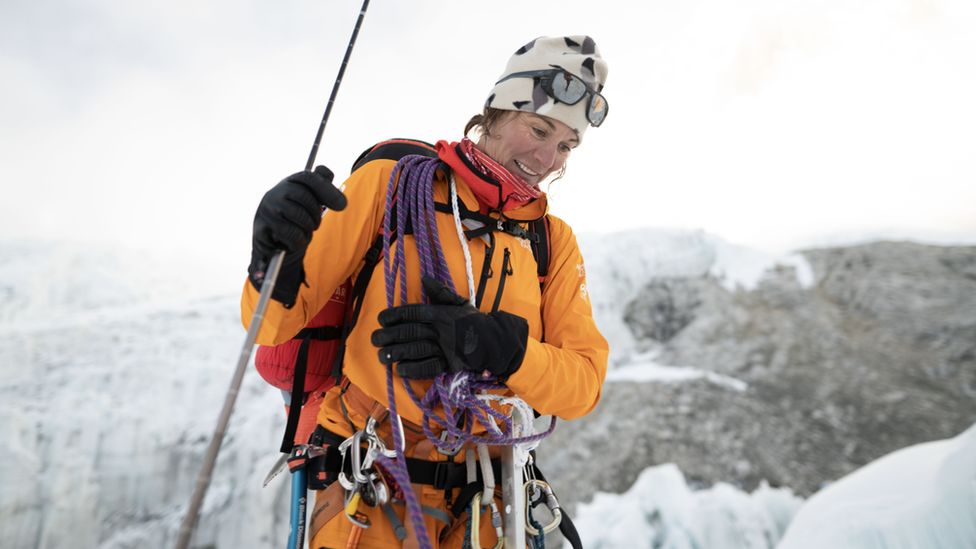
Renowned US ski mountaineer Hilaree Nelson, who died in the Himalayas a week ago, was cremated on Sunday in a Buddhist ceremony in Nepal’s capital Kathmandu. Fellow climbers have been telling the BBC how she was an inspirational figure to a generation of women.
In 2012 Hilaree Nelson became the first woman to climb Everest (8,849m; 29,032 feet) and its neighbour, Lhotse (8,516m), within 24 hours. Six years later she was back on Lhotse, and she and her partner, Jim Morrison, became the first to ski down the mountain.
On Monday 26 September, the couple were skiing down another Himalayan mountain, Manaslu (8,163m), when they triggered an avalanche that swept Hilaree Nelson over a cliff to her death, at the age of 49.
Many of those paying tribute to her have noted that she was the equal of any male climber.
“She was doing things with top male mountain athletes, side by side,” said Dave Watson, an international mountain guide who was on Mt Manaslu with Nelson and Morrison, before the couple left to climb to the summit.
“Her efforts were erasing the label of ‘first male’/ ‘first female’ – it was ‘first person’.
“She was a ground-breaking mountain sports athlete, and she did it with grace and a big smile. Hilaree’s influence cannot be overstated.”
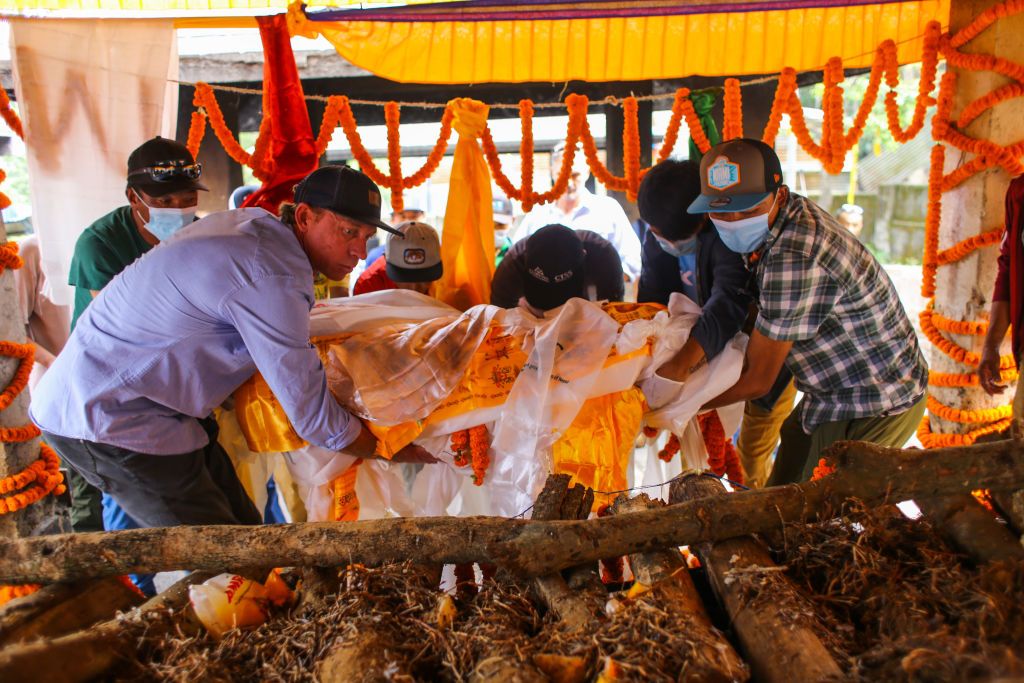
The 36-year-old Swedish climber and adventure athlete, Maria Granberg, who attended Hilaree Nelson’s funeral, described her as a trailblazer and a “curious, committed, rare and resilient spirit” who was a role model for younger women.
“She led expeditions reaching out a hand to the younger generation to follow, showing the ropes, and our future selves got the memo of how to show up as an athlete and human being.
“In the most human way, she paved the way and shed a light on everything that we as female athletes aspire to become, by creating a life and career coloured by grace, grit and wild aspirations.”
Another younger climber, Melissa Arnot Reid – the first American woman to climb Everest without supplemental oxygen – met Hilaree Nelson on Everest 10 years ago, on the expedition when Nelson achieved the double of Everest and Lhotse in 24 hours.
“She was so strong, so driven but had such willingness to be vulnerable,” she told the BBC.
“As a female in this industry, it’s so difficult to be vulnerable without seeming weak, but she did that perfectly and in doing so, showed me what was possible.
“Her mountain skills and fitness and drive were incredible, but I’m certain she will mostly be remembered for remaining exceptionally human while doing superhuman things.”
Hilaree Nelson carried out more than 40 expeditions in 16 countries, from the high Himalayas to one of the most remote mountains in Myanmar, and also Antarctica, where in 2020 she climbed the continent’s two highest peaks – and skied down both.
Billi Bierling, who heads the Himalayan database – keeping records of all expeditions on the Nepalese Himalayas – met Ms Nelson after her record-breaking ski descent from Lhotse in 2018.
“It was amazing to meet her, she was a great ski mountaineer,” she says.
“The whole mountaineering scene is still very much in male hands. You do have some amazing women climbers, but Hilaree was an extreme skier too, while mountain skiing is also mainly male-dominated.”
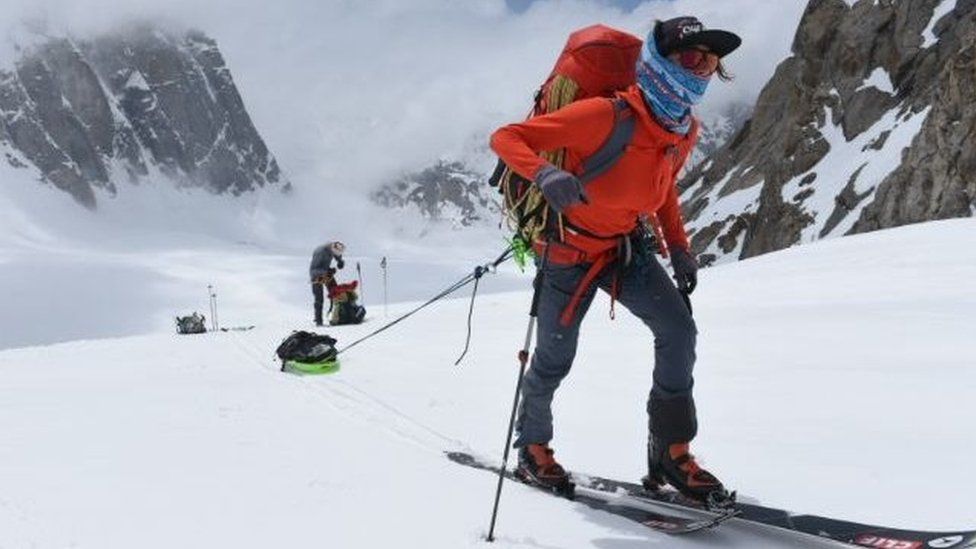
Dave Watson, who was on Manaslu with Hilaree Nelson and Jim Morrison before they left for the summit, says he decided to stay put at camp three, because there were strong winds and a risk of avalanches.
In fact, on the same day that the couple reached the summit there was another avalanche that killed one Sherpa and injured more than a dozen other climbers.
Jim Morrison got down safely, though, after seeing Hilaree Nelson swept away, and was one of those who found her body on Wednesday.
The outpouring of grief seen among the mountaineering community is a sign of how badly it has been rocked by her death, Ms Bierling says.
“She was a loving and a committed mother of two beautiful children.
“But by the same token, she fulfilled her dreams and she was beautiful and always very humble.”
-
-
5 days ago
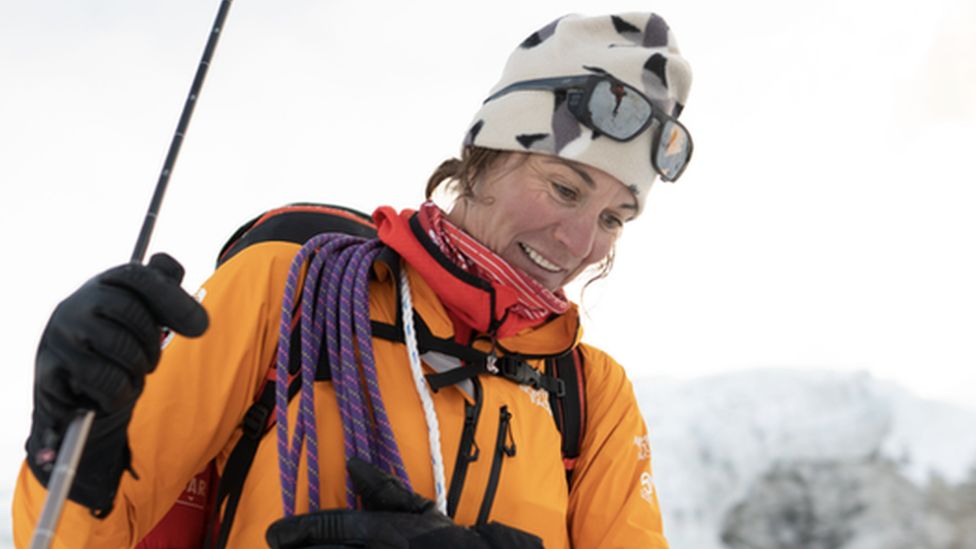
-

